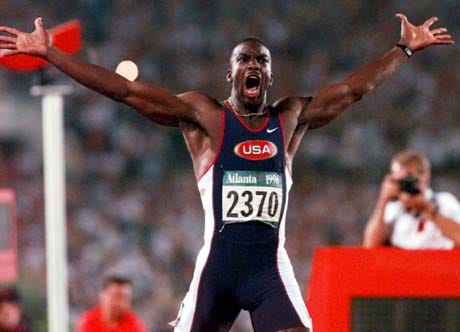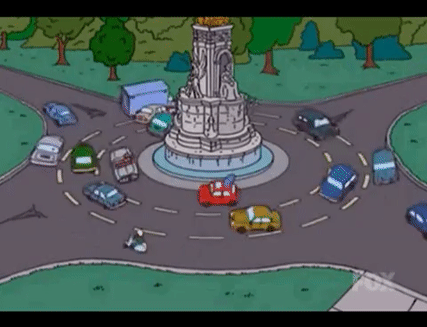Building resiliency is a lot like training for a marathon — both figuratively and literally. We want to flex the power of the pause, stretch our mental fitness, and stack our support systems.
Let’s start off by defining what we mean by re·sil·ience:
The capacity to adapt, grow and thrive in the face of challenge
We often look to one’s ability to spring back into shape after a hard time. And with another lens, it’s really about being able to bounce forward. Stuck in the muck? Sit with it, dance with it, move through it — and come out stronger. It’s how we respond in those really difficult times, those moments of dissonance — that mark the turning points of our lives.
If you’re a resilient m*therfucker it means that you actually seek out opportunities to adapt. And here are 3 ways we can all learn to do just that:The Power of the Pause
When a first responder arrives at an emergency scene what’s the first thing they do?

Pause. First, they take abreath in and out and then take a thorough scan of their surroundings. A responder’s duty is to become situationally aware. So in the case of an auto accident, instead of rushing to help the driver who flipped his car, the responder radios for her team. Conscious of the abandoned truck nearby that appears to be smoking —she directs a special squad to ensure that the gas tank isn’t going to blow. She secures the scene. Then she responds.
Pause→ Sense → Respond → Adapt
Right now, we’re in a global state of emergency. Everything is more acute. Each of us has the opportunity, and I believe the same duty, to gain situational awareness which comes with this great pause. Although we cannot see the virus nor easily defend against it — if we’re looking, it reveals how we have and how we might engage with each other and our communities. It shows that what the same threat we are faced with is analogous to how we have been treating other species and our planet. With this heightened awareness, we can begin to make wiser decisions on what should be given attention and discern the things that matter from those that don’t.
In work, as in life, when you’re in sync with your higher self you communicate more effectively. You say what you mean and mean what you say. You show up in the world like the person you were meant to be. And sometimes, this alone is enough.
Other times, there’s actually nothing to do. In a fast-moving, always-on, consumptive existence it’s hard for us to remember that we are human beings, not human doings. Doing nothing is always an option.

Mental Fitness
I worked in a mental health charity for some time. If there was ever a period in my life where I could see resilience it was then. Before this, I didn’t really notice poor mental health issues because I typically turned a blind eye. I was too busy judging or averting. Only after this experience could I appreciate that there is such stigma associated with mental health precisely because it’s not visible until there’s some telling behaviour. Those things that we cannot see often give us a ripe opportunity to make up wild stories.

The truth however is that 1 in 2 people will suffer from mental illness before turning the age of 40. No longer are matters of mental health taboo — it’s a reality that affects us all. We are experiencing an unparalleled assault on our collective psyche. The Canadian government has recently cautioned:
“Your personal, mental, and emotional health is far more important than anything else right now.”
As time feels more elastic (and our relationship to it moves from Chronos to Kairos and back again) —so too do our anxieties. Existential angst is making waves. Both our individual and collective anxieties are all over the shop. And with this, whisks in the ugly cousin — stress. This is the brand of stress that we see as negative. But the other brew— eustress, actually serves us. Eustress lives in the short-term and is something we have the wherewithal to actually tackle.
If you’ve ever got those butterflies as you step on stage to do a presentation then you know precisely what eustress feels like. It can help improve your performance. Eustress makes cameos in stealth military units, Nascar racing teams, elite athletic crews, and top-tier medical units. In a variety of situations, it aids us to respond discerningly, put ourselves into the stretch zone, and lean into that muck.

The onus then falls on you to train your brain. Just as we wash our bodies, we all need to clean our brains. When we partake in practices that provide for good mental health — we gain more clarity to make wise decisions. We learn to adopt the attitude to adapt to change with more ease. We learn to rely on our selfhood. With a measured mind, we know deep down that — we got this.Stacking Systems
We see complex adaptive systems (CAS) everywhere. I find one of the most beautiful of such systems to be a flock of birds 🦅🦅. Schools of fish 🐠🐠 come in a close second. Perhaps the most mysterious is that system which makes up the mush between our ears. With the 100 billion cells in our brain 🧠 furiously colliding with each other emerges our consciousness.
Economists, social scientists, psychologists, systems thinkers, and those who study CAS explain that we can predict behavior within these systems. Because amongst the seemingly chaotic nature of CAS comes something beautiful: unintended order.
The economy is really just about people and their behavior. We can anticipate what will happen by mapping out different scenarios. As a result of a scarcity mindset scenario — we’ve witnessed the pendulum of supply and demand drastically swing.
Or take for example traffic. In Medellin, Colombia only cars with specific license plates are allowed on the road on designated weekdays. This solution to traffic congestion lets the agents within the system (workers) plan alternative options: public transport, carpooling, taxis, or working from home. The result is a better-functioning, more resilient, transportation system.

Or take the roundabout. In Rome, this wonder of the world ushers in thousands of cars every hour smoothly and without a glitch. But when a traffic light fizzes — it’s a total shitshow. One transportation network is reliant more on human intuition while the other more on technological innovation. In other words, the traffic light grid is complicated while the web of roundabouts is complex.
What does all of this have to do with building your resiliency muscle? Everything. It means we can anticipate weak links, locate tensions, manage stress, mitigate anxiety — and design interventions. With a bit of slack in our personal operating systems, we can practice meeting pressure head-on and convert it into performance.
Pressure→ Process → Practice → Perform
The best way I know how to do this is by building and cultivating support networks. These are the people, groups, communities, and connections that you can lean on (and yes, they can lean on you too). Like the roundabout, if there’s extra tension — the system will stand through spontaneous self-organisation.
We should also cultivate support networks that are diverse.
Because difference is good. Difference generates power.

More points of view give us the benefit of different approaches to adopt and unique strategies with which to persevere. With more variation in our lives, we also become more colorful, compassionate, self-reliant, flexible, and innovative. We learn that we all have the same capacity to thrive in the face of adversity. And we emerge stronger both alone and together. We unite, reform, upgrade, and cooperate for better ways to be, think, and do.
It’s time to engage more actively with the unknown and play well with others. It’s time to reset, clean our minds, and build diverse support systems so we might flourish in the future. Resiliency is the muscle we need most and it’s time to get flexing for the emergent era in which we live.
Quite apart from the pandemic, what’s happening in America and around the globe now is much larger than a malfunction. The very system that underpins a host of other systems has revealed its dark underside. And it’s not just buggy it’s broken. Slowly but surely it will be rewritten and hopefully in a peaceful way.
Riots are nothing new, and current events only serve as reminders that when something strikes our hearts and minds — swarms will stand in solidarity ready for change.
